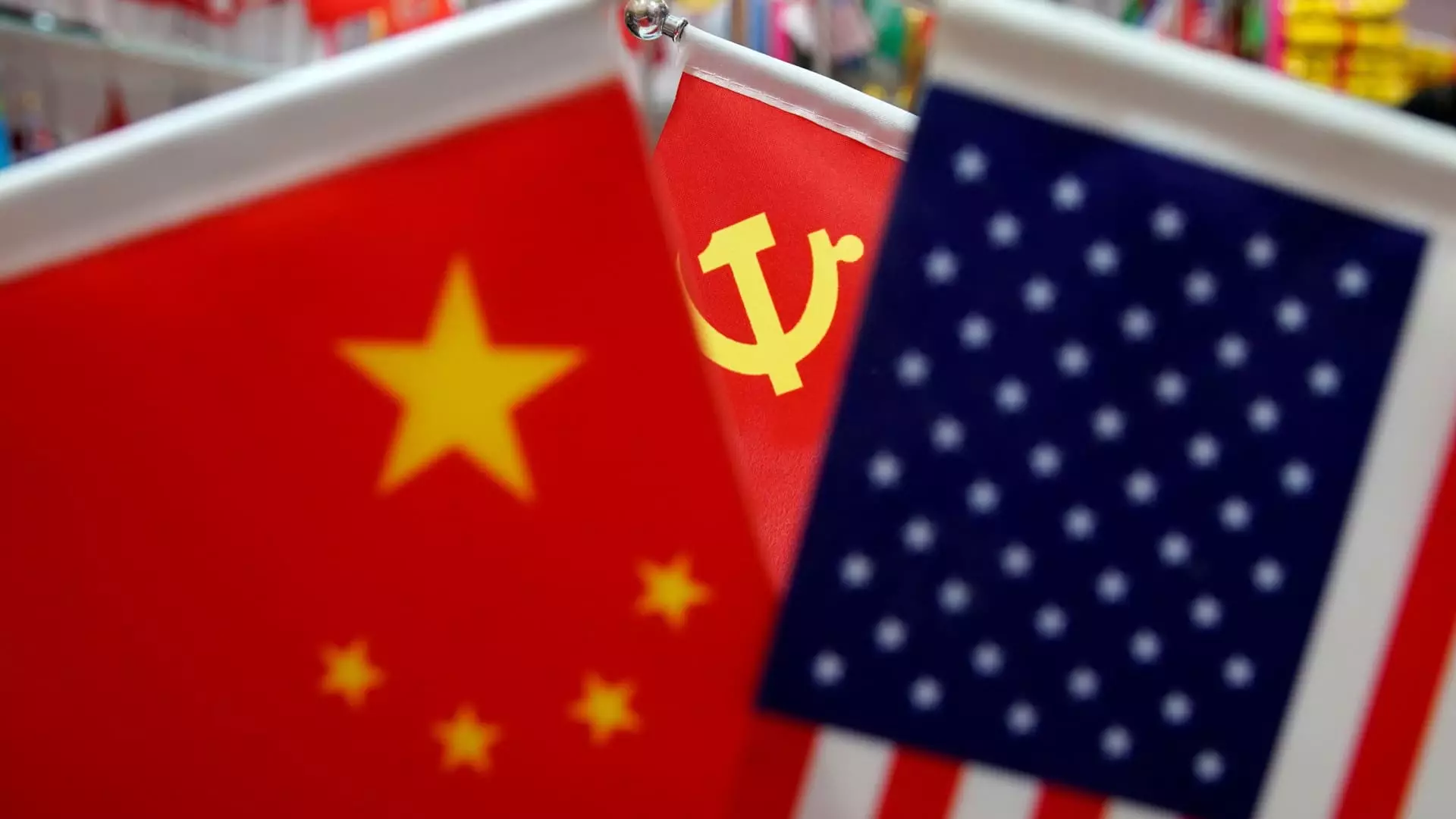In the ever-complex world of geopolitics, the rhetoric surrounding U.S.-China trade relations has often veered into farce. President Donald Trump recently painted a picture of camaraderie with his Chinese counterpart Xi Jinping, only to contradict himself by admitting the Herculean difficulty of striking a deal. This contradictory stance, masterfully articulated on Truth Social, is just a microcosm of the larger bumbles and blunders that characterize Trump’s dealings with China. It’s almost whimsical to think that diplomacy can be reduced to 280-character sound bites, yet here we are.
Trump’s stance—saying he likes Xi but finds him “VERY TOUGH”—echoes a comforting yet misguided notion that personal rapport can transcend the stark realities of international trade. Rather than fostering genuine dialogue, this approach merely obscures the underlying tensions that have escalated due to miscalculations and failures in communication. The leaders appear more interested in maintaining a façade of mutual respect than in genuinely addressing the escalating trade grievances that could destabilize not just economies but also global political alliances.
Stalled Negotiations and Misguided Expectations
As reported by Treasury Secretary Scott Bessent, trade talks are “a bit stalled,” reflecting a stagnant trajectory in negotiations that have yet to yield any meaningful results. This stagnation is not a matter of simple disagreements; it indicates a fundamental disconnect in understanding. Both nations have entrenched positions; the U.S. seeks to curb China’s technological ambitions while China maintains its stance of sovereignty and resistance against perceived Western overreach. Blaming one another for the collapse of a fragile agreement reached in Switzerland only pours salt on the wounds.
It’s no secret that trade agreements are often mired in layers of complexity, yet it appears both sides have fallen prey to negotiating tactics that prioritize domestic posturing over diplomatic resolution. The promise of a “90-day suspension of tariffs” sounds appealing on paper, but in practice, the elusiveness of tangible compromises reflects the hollow nature of these promises. The U.S.’s insistence on limiting China’s access to advanced technology further complicates matters, driving a wedge between the two countries under the guise of national security.
The Role of Domestic Politics in International Relations
One cannot overlook how domestic political pressures shape foreign policy. Trump’s administration, while grappling with a multitude of domestic challenges, appears to use China as a convenient scapegoat, diverting public attention away from its failures. This reliance on adversarial positioning serves to consolidate Trump’s base but does little to create a cooperative environment necessary for productive foreign relations. The recent revocation of visas for Chinese students is just one example of how domestic concerns can lead to decisions that are not in the best interest of international diplomacy.
Countries across the globe are watching, and the ramifications of these decisions extend far beyond bilateral relations. When a nation adopts an antagonistic posture, it opens the door to retaliation, eroding any remaining foundations of trust. In this context, Xi’s remark that “the recent string of negative measures” from Washington fields a broader concern—namely, the potential for escalating tensions that could ripple into military and economic spheres, destabilizing regions far beyond U.S.-China borders.
Beijing’s Calculated Moves
Conversely, Beijing’s strategy seems thoughtfully calculated. Chinese Foreign Minister Wang Yi’s insistence that the Trump administration’s policies are “groundless” speaks to an overarching narrative—that China is equally unwilling to compromise its position without assurances that America will meet its end of the diplomatic bargain. The pressure tactics of the Chinese government shouldn’t be dismissed; rather, they serve as poignant reminders that in the chess game of international trade, every move is meticulously planned, perhaps more so than in the trenches of the U.S. administration.
Neo Wang, a prominent economist, underscores the dilemma ahead for Xi; any call with Trump must be handled with extreme caution to prevent putting the Chinese leader in a position of perceived weakness. This kind of fraught interaction suggests that while the two leaders may eventually communicate, the likelihood of substantive breakthroughs remains uncertain. In international relations, appeasement seldom leads to legitimate compromise, a truth that both countries must reckon with as they navigate this tumultuous arena.
These are not just trade talks but a reflection of the broader ideological battle between two economic titans. The stakes are high, and this is no time for half-measures or wishful thinking. Striking a balance between assertiveness and diplomacy is critical, not just for the nations involved but for maintaining economic stability worldwide.

